Cushion Fleabane, Hairy-seeded Daisy, Kittitas Fleabane, Purple Cushion Fleabane
Erigeron poliospermus var. poliospermus
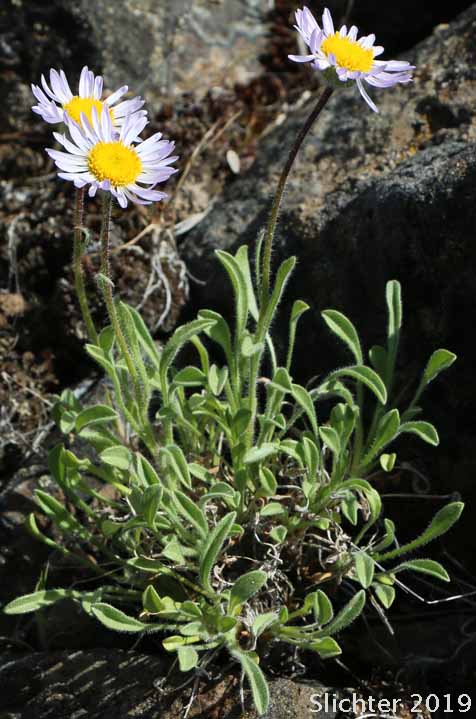 -
- 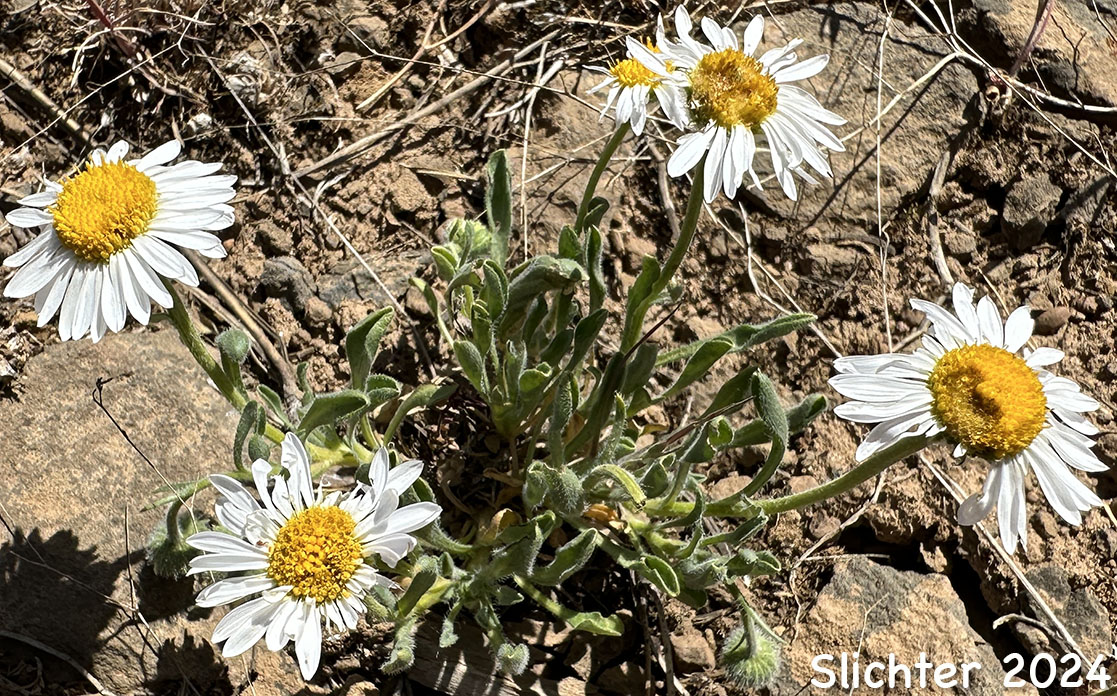
Cushion fleabane in bloom at left on scablands about one-quarter mile uphill to the west of Wenas Campground, Yakima County, WA......May 24, 2019.
The image at right shows cushion fleabane blooming on scablands along What Road at the high point on Department of Natural Resources lands, Yakima County, WA.....May 31, 2024. (T16R16E S7)
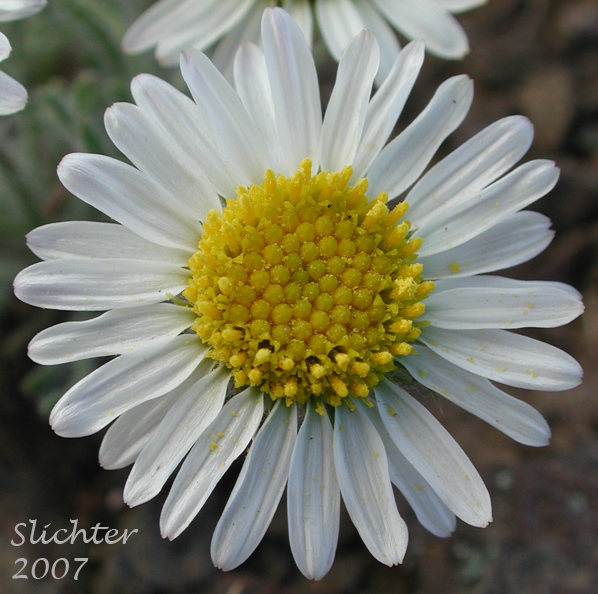 The photo at right shows a close-up of the flower head of cushion fleabane as seen atop the Horse Heaven Hills near Benton City, WA.........April 28, 2006.
The photo at right shows a close-up of the flower head of cushion fleabane as seen atop the Horse Heaven Hills near Benton City, WA.........April 28, 2006.
Characteristics:
Cushion fleabane is an attractive wildflower with the habita of a low cushion plant to 15 cm tall. The basal leaves are
linear-oblanceolate to spatulate, and somewhat hairy, the hairs spreading. The leaves measure up to 8 cm
long and 12 mm wide.
The flower heads have
up to 15-45 white, pink or lavender ray flowers surrounding a yellow central disk which
is generally less than 20 mm in diameter. The rays are each 5-14 mm long and
1.3-3.6 mm wide. The involucre which is densely covered by spreading hairs, ranges from 5-9 mm tall.
Habitat:
Cushion fleabane may be found in dry open habitats in the lowlands east of
the Cascade Mts. Cushion fleabane is frequently found near sagebrush.
Range:
Cushion fleabane is found east of the Cascade Mountains from south-central
British Columbia through central Washington into Idaho and central Oregon.
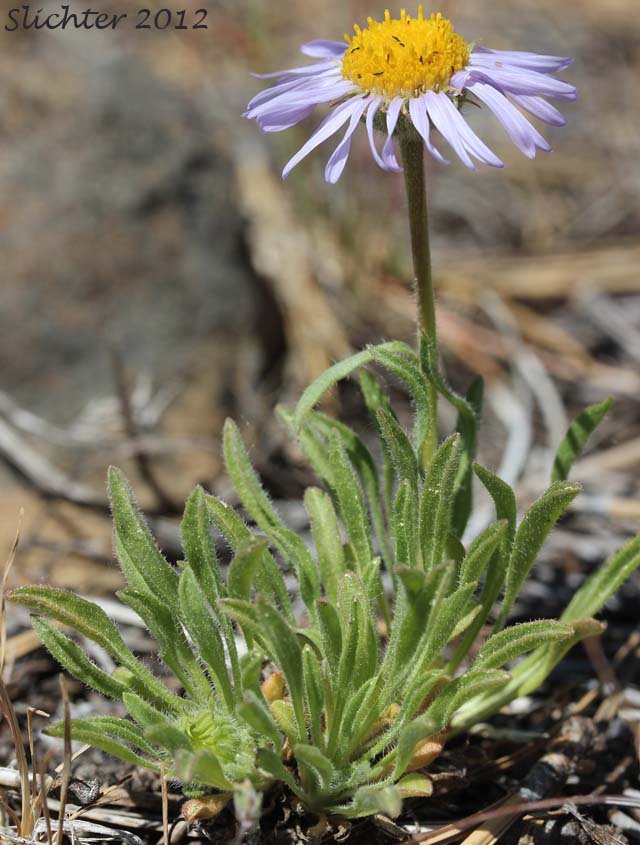 -
- 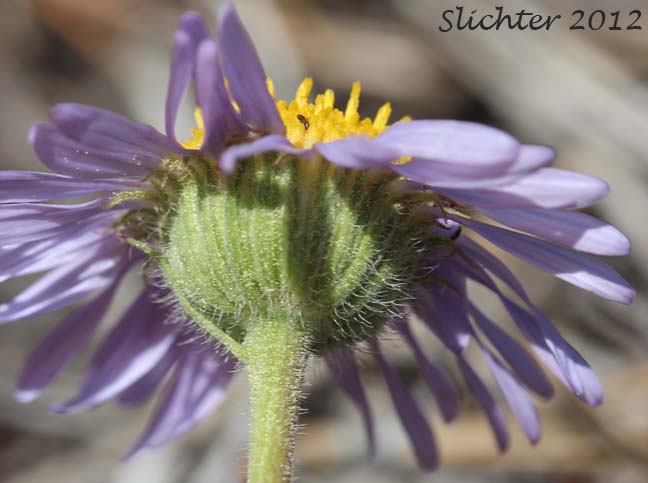 -
- 
Cushion fleabane blooming in scabland along the Colockum Pass Road, Wenatchee Mountains...........July 7, 2012.
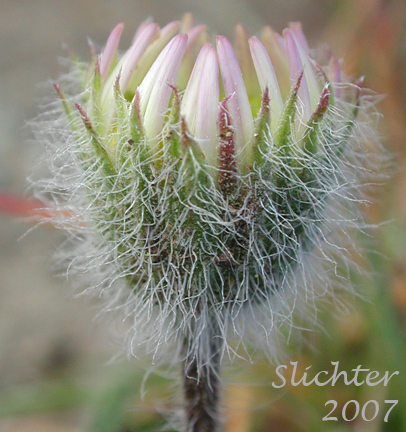 -
- 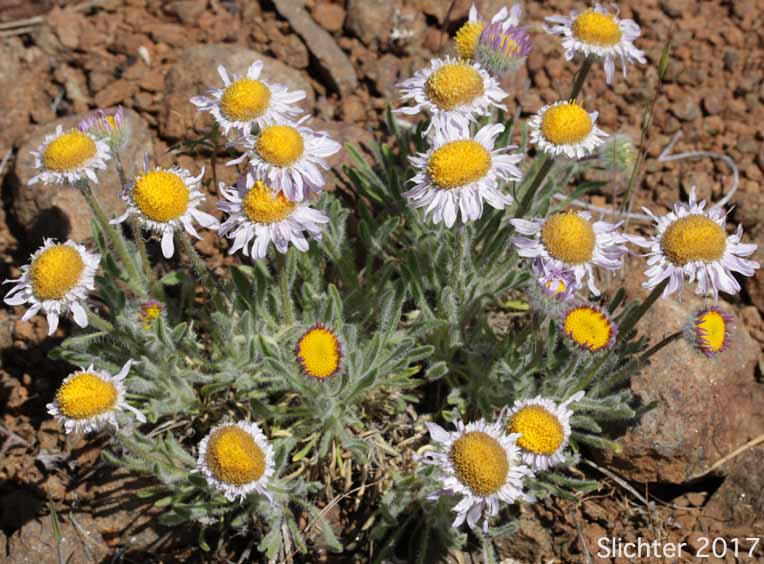
The photo at left shows the involucral bracts and newly emergin ray flowers of cushion fleabane as seen in the Horse Heaven Hills........April 28, 2006. The photo at right shows cushion fleabane finishing its bloom atop Bickleton Ridge in the Bickleton Ridge Unit of the Klickitat Wildlife Area.........May 28, 2017.
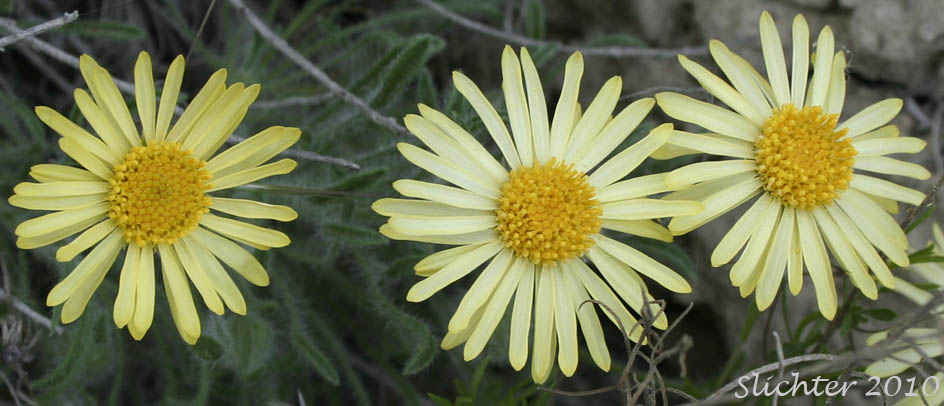 -
-  -
- 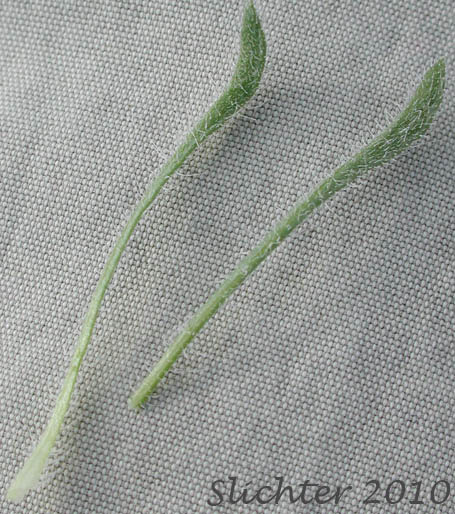
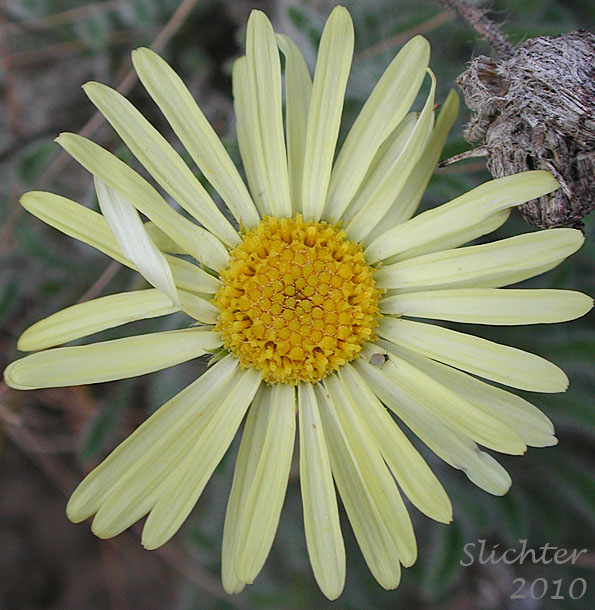 -
- 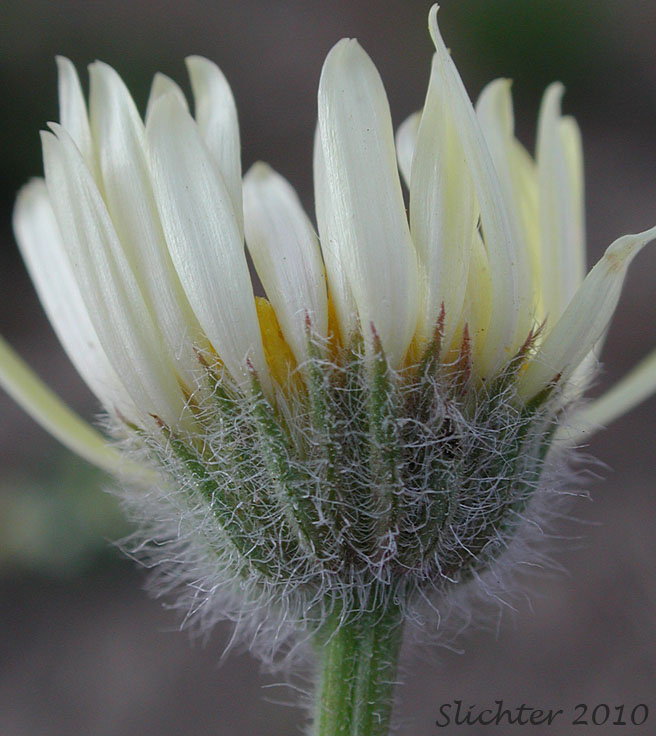 -
- 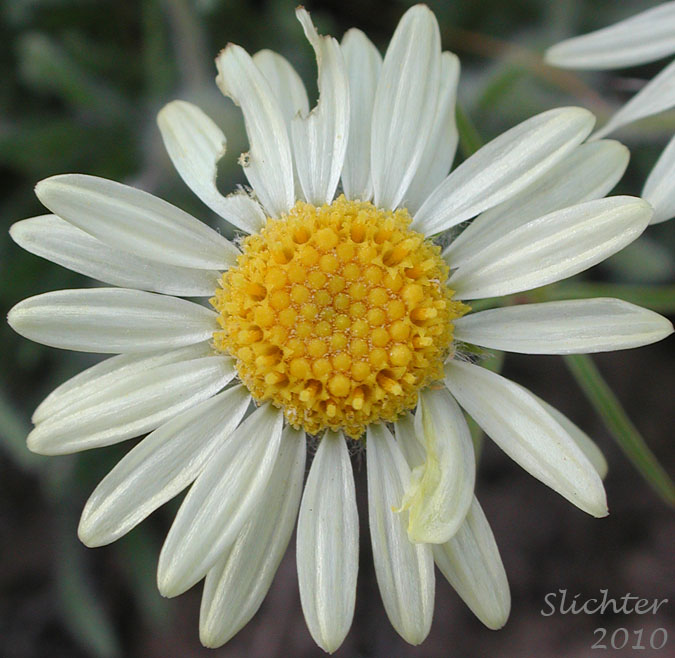
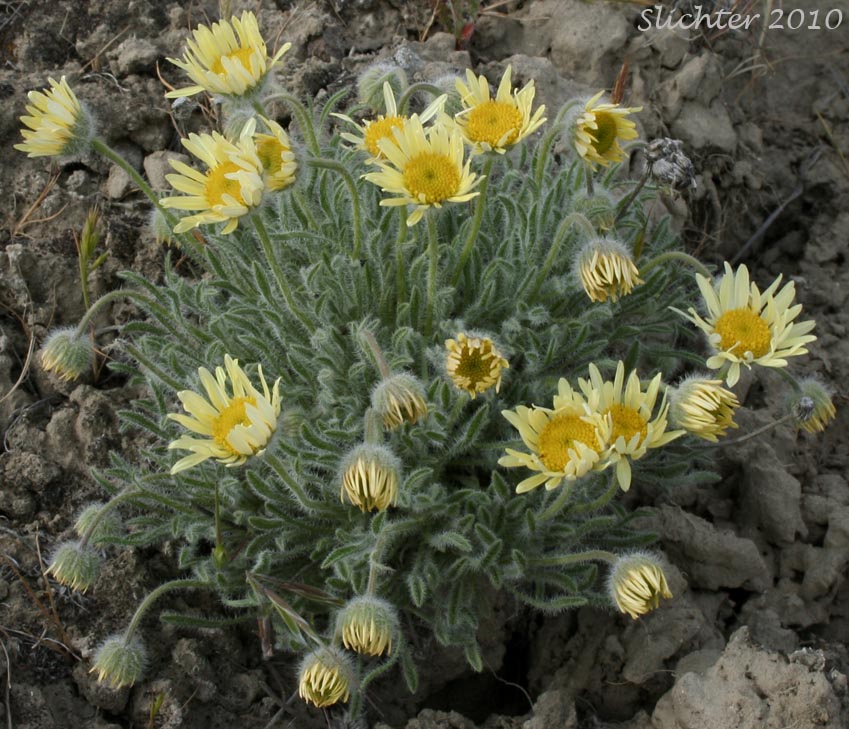 -
- 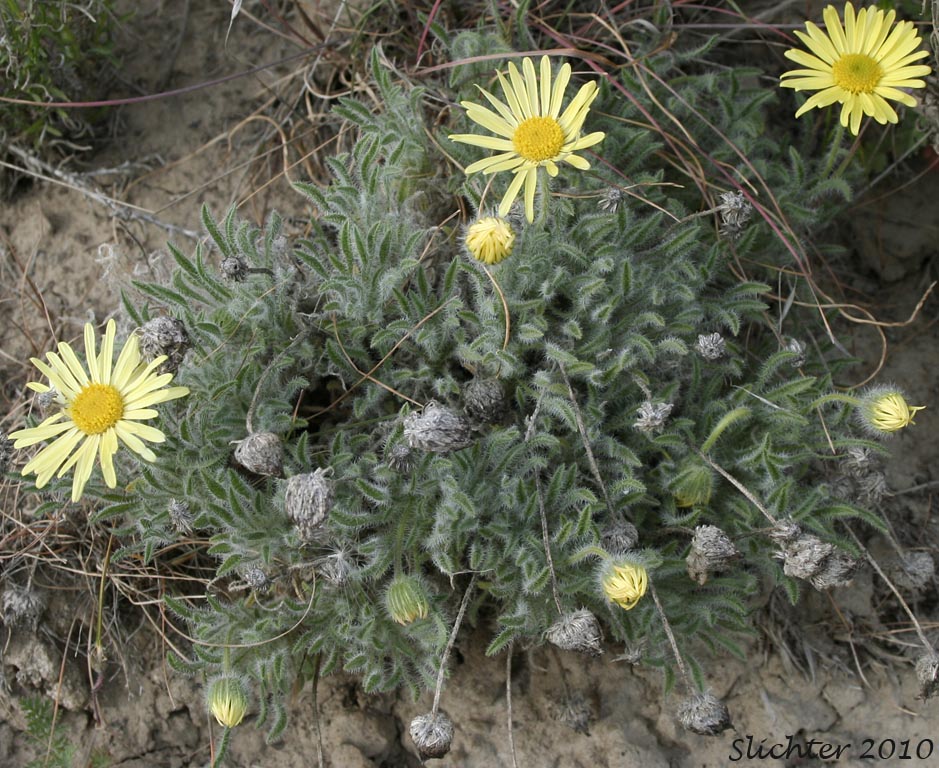 -
- 
Additional close-ups of cushion fleabane as seen along Sixprong Road between Alderdale Road and the Roosevelt Grade Road in eastern Klickitat County.........April 25, 2010. A few lavender-rayed cushion fleabanes can be seen around this location in south-central Washington, but the majority have white or cream-colored rays. Note here that several plants (photographed about 3 miles west of Alderdale Road) have canary-yellow rays which are the first this author has ever seen for this species.
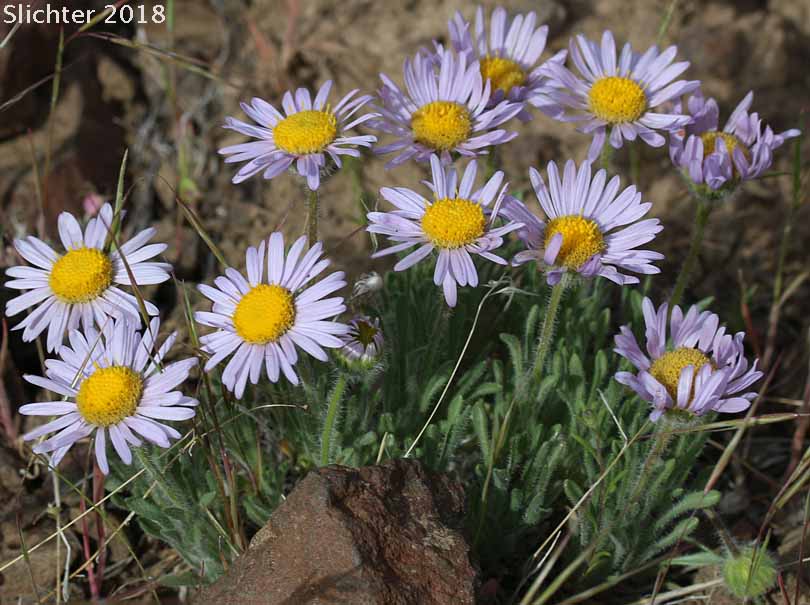 -
- 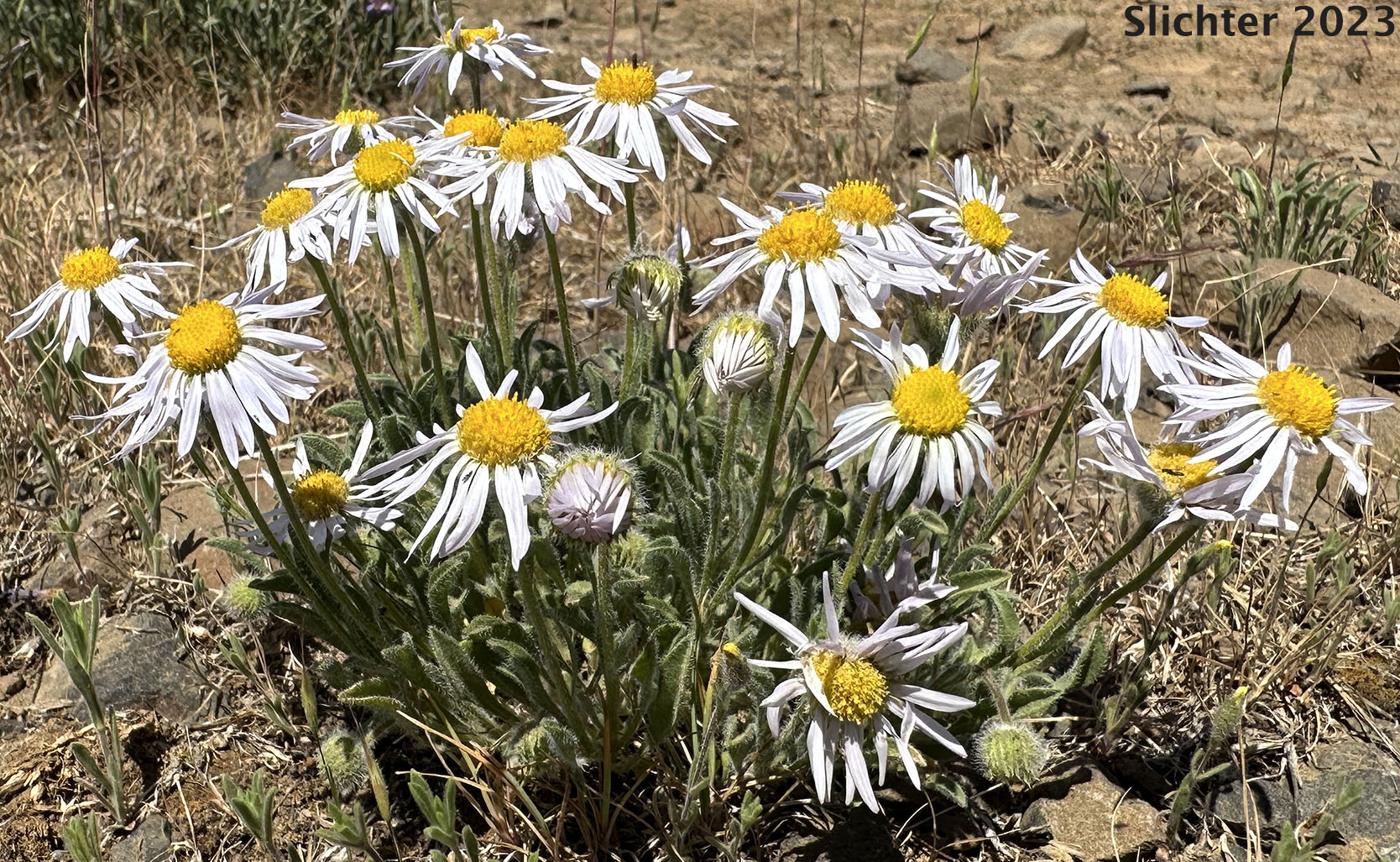
Cushion fleabane in bloom at left along the Chimney Rock Trail, Lower Crooked Wild and Scenic River (BLM).........May 10, 2018. The photo at right shows cushion fleabane blooming on gravelly soils around Manastash Observatory, Kittitas County, WA.....June 4, 2023.
 -
- 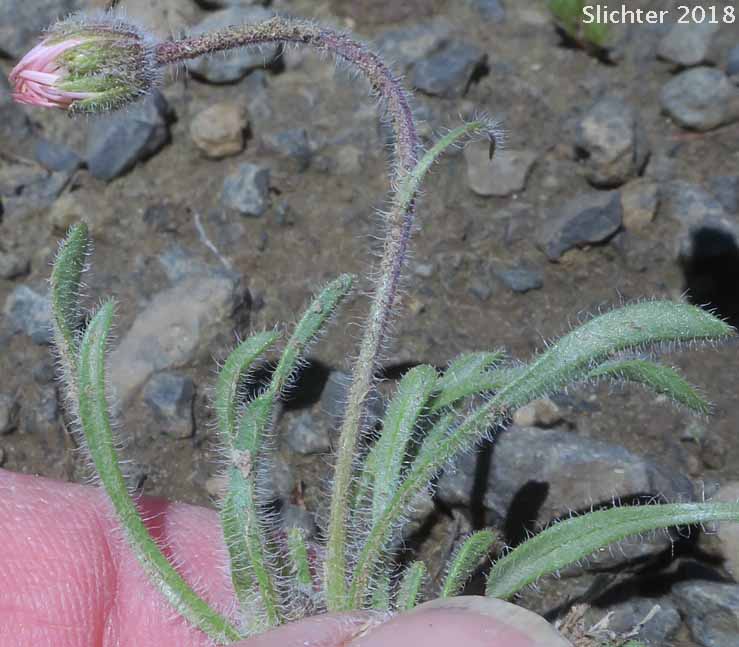 -
- 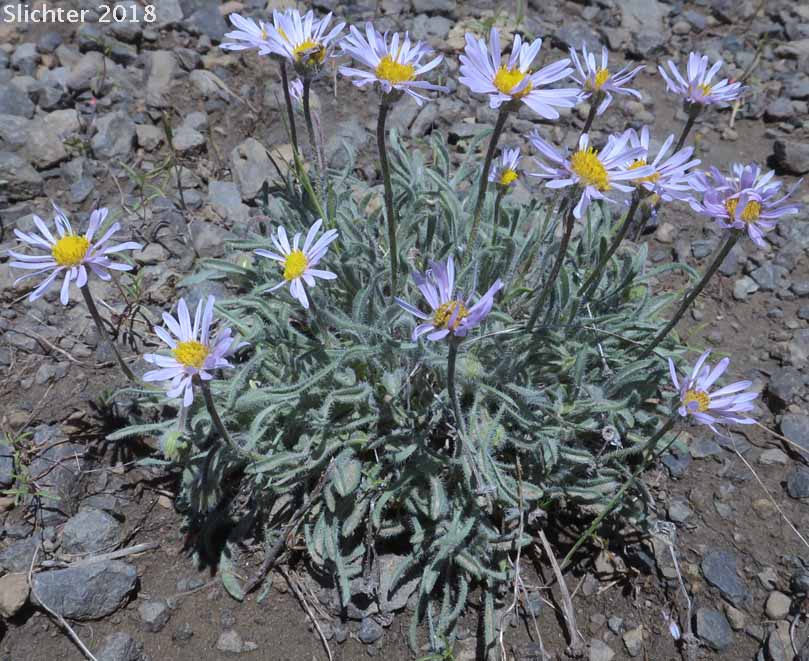
Cushion fleabane in bloom along Forest Road 3010-150 between Forest Roads 22 and 3010, northeast corner of Big Summit Prairie, Ochoco National Forest.......May 27, 2018.
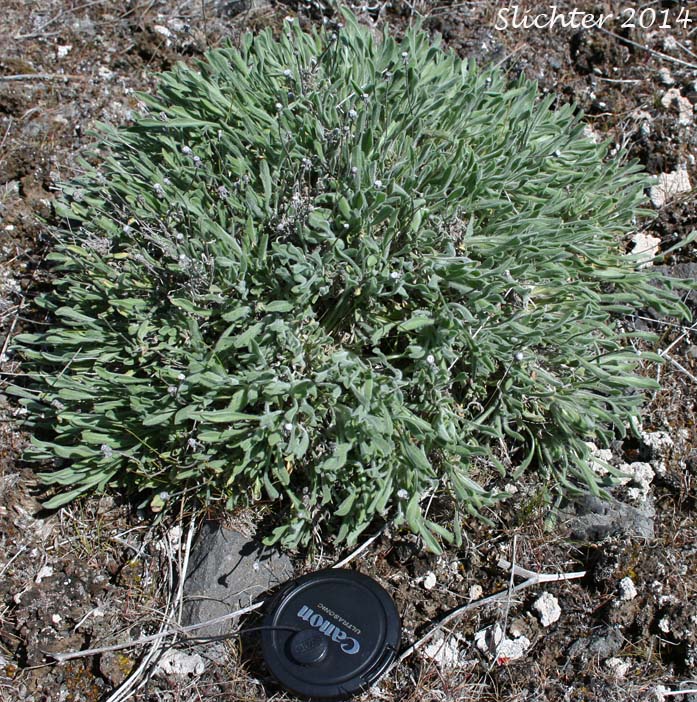 -
- 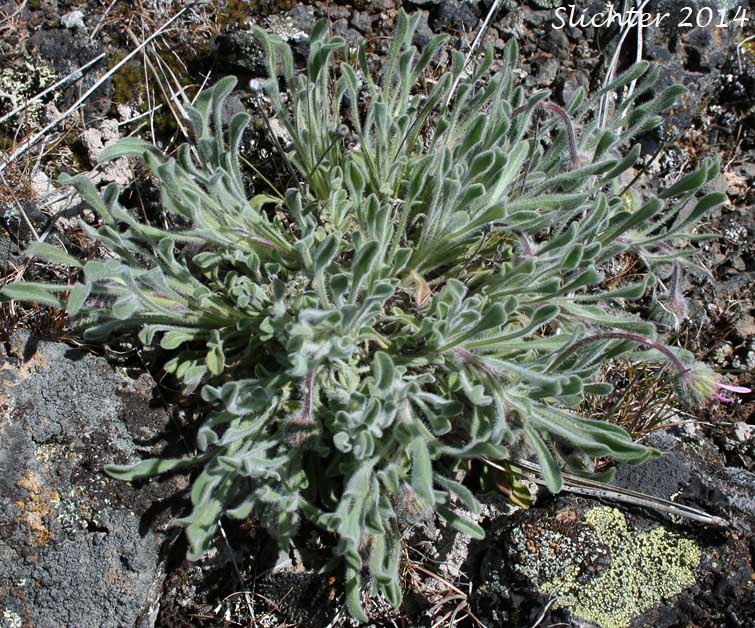
Cushion fleabanes almost ready to bloom as seen on basalt outcrops along the Sprague Highway about one mile west of the junction with Miller Ranch Road, eastern Oregon.........April 28, 2014.
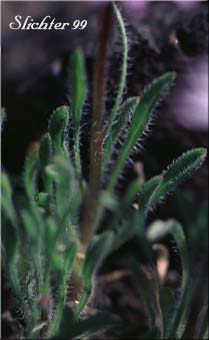 -
- 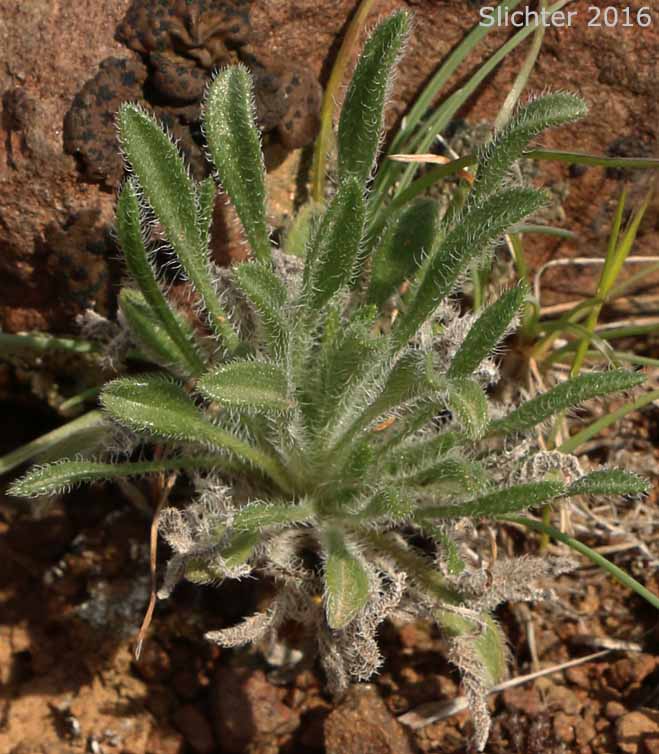
Leaves (left) of Erigeron poliospermus. Note the spreading
hairs. The photo at right shows a cushion of leaves fo cushion fleabane as seen on rocky slopes high above and to the north of the day use area at Cottonwood Canyon State Park..........March 18, 2016.
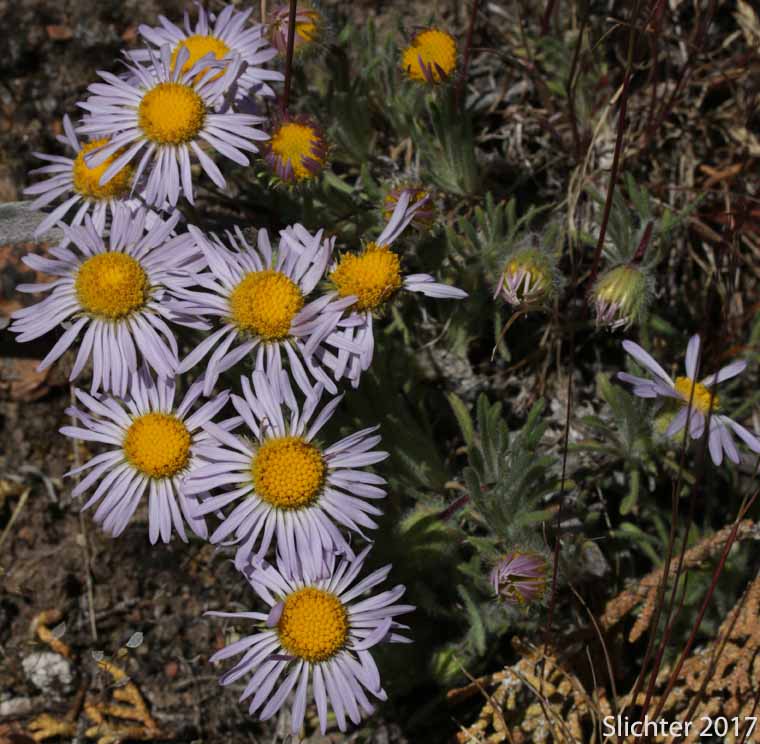 -
- 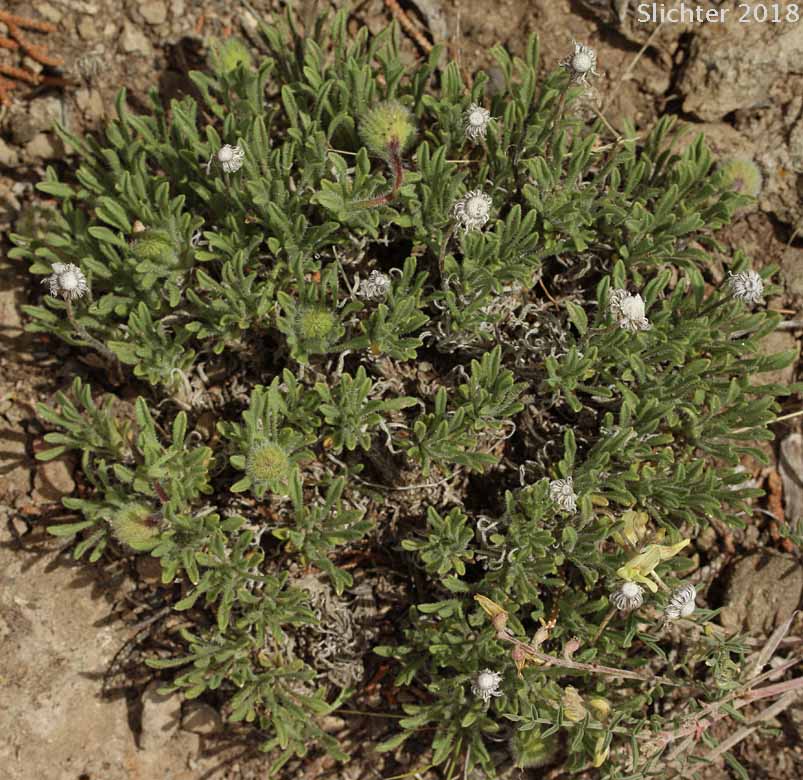
Cushion fleabane as seen at left along the Rimrock Springs Trail #850, Crooked River National Grasslands........May 20, 2017. The photo at right shows an older, somewhat shrubby cushion fleabane along the Alder Springs Trail #855, Crooked River National Grasslands.......May 11, 2018.
 -
- 
Cushion fleabane in bloom at left on scablands about one-quarter mile uphill to the west of Wenas Campground, Yakima County, WA......May 24, 2019.
The image at right shows cushion fleabane blooming on scablands along What Road at the high point on Department of Natural Resources lands, Yakima County, WA.....May 31, 2024. (T16R16E S7)
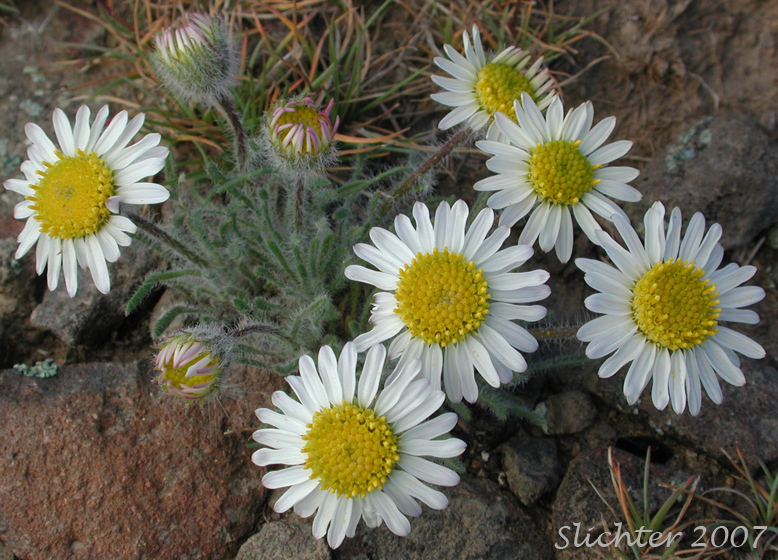
The photo above shows cushion fleabane as seen atop the Horse Heaven Hills near Benton City, WA........April 28, 2006. The ray flowers range from white to lavender in color. Notice also the numerous spreading hairs on the leaves, stems and involucres.
Paul Slichter